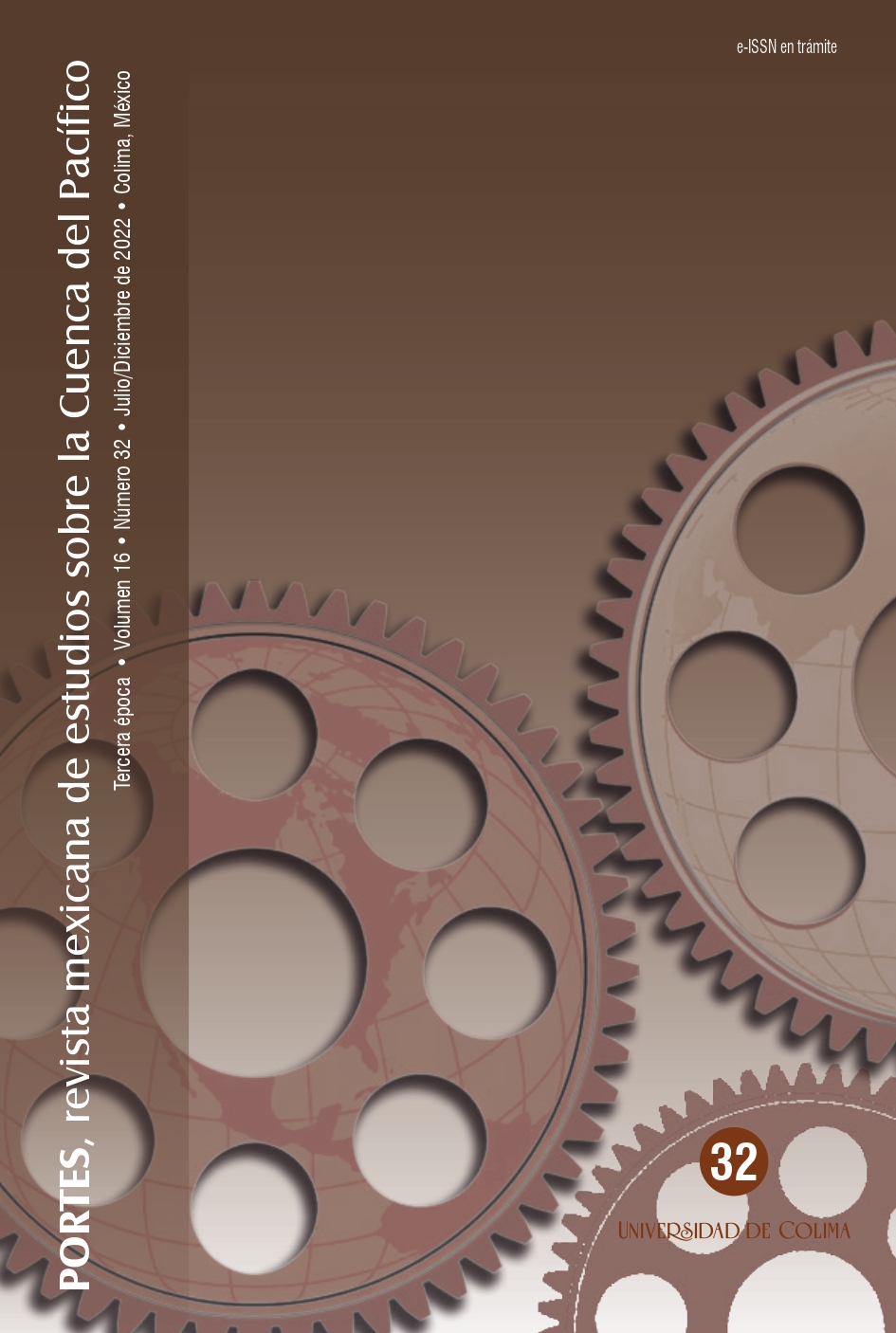Knowledge economy and tourism competitiveness in APEC
Keywords:
economy, capital, tourism, competitiveness, APECAbstract
This version was reformatted by the authors and translated to spanish from the chapther in the book Knowledge Society and Education in the Asia-Pacific. Recent trends and Future Challenges, published by Springer and Pacific Circle Consortium, 2021.
The work researches the relationship between tourism activity and the knowledge economy, analyzing the cases of economies affiliated to the Asia-Pacific Economic Cooperation Mechanism (APEC), using documentary research techniques in databases, academic articles and information obtained from international organizations. Papers on knowledge society and economy, competitiveness and theoretical models on the tourism system were consulted. Data were obtained on knowledge management, tourism competitiveness, as well as statistics on the knowledge economy, investment in research and development, human capital, population in higher education and international tourism data. Among the initial results, a relationship between investment in knowledge and tourism competitiveness was identified, along with a certain resistance among tourism organizations towards the adoption of knowledge management systems.
Downloads
References
Airey, D. y Tribe, J. (Eds.). (2006). An international handbook of tourism education. Routledge.
Asia-Pacific Economic Cooperation. (2017). 2017 APEC Economic Policy Report. Structural Reform and Human Capital Development. Singapore: Asia-Pacific Economic Cooperation Secretariat.
Asia-Pacific Economic Cooperation. (2019). APEC 2018 Report on Education and Economic Development. Singapore: Asia-Pacific Economic Cooperation Secretariat.
Bell, D. (1973). The Coming of Post-Industrial Society. New York: Basic Books.
Bowen, J. y Whalen, E. (2017). Trends that are changing travel and tourism. Worldwide Hospitality and Tourism Themes.
Buhalis, D. y Jun, S. H. (2011). E-tourism. Contemporary tourism reviews, 1, 2-38.
Calderwood, L.; Soshkin, M.; Fisher, M. Weinberg, N. (2019). The Travel & Tourism Competitiveness Report 2019. Geneva: World Economic Forum
Castelfranchi, C. (2007). Six critical remarks on science and the construction of the knowledge society. Journal of Science Communication, 6(4), C03.
Chen, D. H. y Dahlman, C. J. (2005). The knowledge economy, the KAM methodology and World Bank operations. World Bank Institute Working Paper, (37256).
Drucker, P. (1969). The age of discontinuity: Guidelines to our changing society. Routledge.
European Bank for Reconstruction and Development. (2019). Introducing the EBRD Knowledge Economy Index. London. file:///E:/LIBRO%20APEC%20USB/ebrd-knowledge-economy-index.pdf
Hjalager, A. M. (2015). 100 innovations that transformed tourism. Journal of Travel Research, 54(1), 3-21.
Holloway, J. (1998). The Business of tourism. New York: Addison Wesley Longman.
Hudson, S. (2013). Knowledge exchange: A destination perspective.
Journal of Destination Marketing and Management, 2, 129–131.
Machlup, F. (1962). The production and distribution of knowledge in the United States (Vol. 278). Princeton University Press.
Maier, R. (2005). Knowledge management systems: information and communication technologies for knowledge management. Computing Reviews, 46(1), 24.
Mincer, Jacob (1958) Investment in Human Capital and Personal Income Distribution. Journal of Political Economy 66(4), 281-302.
Rooney, D., Hearn, G. y Ninan, A. (2005). Knowledge: Concepts, policy, implementation. Handbook on the knowledge economy, 178-190.
Solow, R. (1956) Contribution to the Theory of Growth. Quarterly Journal of Economics 70(1), 65-94.
Sörlin, S. y Vessuri, H. (Eds.). (2007). Knowledge society vs. knowledge economy: Knowledge, power, and politics. Springer.
Statista. (2020). The 100 largest companies in the world by market value in 2019. https://www.statista.com/statistics/263264/top-companies-in-the-world-by-market-value/
Thomas, R. (2012). Business elites, universities and knowledge transfer in tourism. Tourism Management, 33, 553–561.
United Nations Education, Science and Culture Organization. (2018). Global Investments in R&D http://uis.unesco.org/sites/default/files/documents/fs50-global-investments-rd-2018-en.pdf
World Bank. (2007). Building knowledge economies: Advanced strategies for development. World Bank.
World Bank. (2012). Knowledge economic index. http://web.world-bank.org/archive/website01030/
World Economic Forum. (2019). The Global Competitiveness Report 2019. Geneva: WEF. http://www3.weforum.org/docs/WEF_The-GlobalCompetitivenessReport2019.pdf
World Bank. (2019). Human Capital Index and Components, 2018. https://www.worldbank.org/en/data/interactive/2018/10/18/human-capital-index-and-components-2018
World Tourism Organization. (2019). Tourism Highlights 2018. https://www.e-unwto.org/doi/pdf/10.18111/9789284421152
Downloads
Published
How to Cite
Issue
Section
License
Copyright (c) 2022 University of Colima

This work is licensed under a Creative Commons Attribution-NonCommercial-ShareAlike 4.0 International License.
La revista PORTES de la Universidad de Colima se distribuye bajo una Licencia Creative Commons Atribución-NoComercial-CompartirIgual 4.0 Internacional






